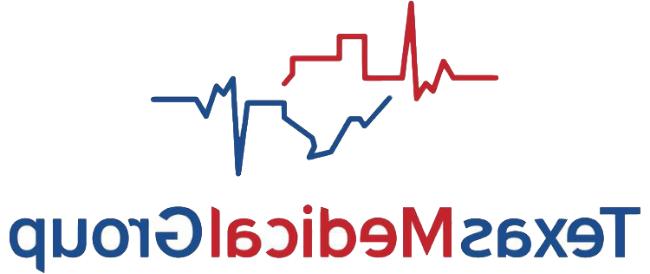
州际和. Intrastate Experience Modification Rating
An experience modification rating (EMR) is a numerical indicator crucial in workers’ compensation insurance. It quantifies an employer’s workplace safety and claims management performance as it relates to workers’ compensation. The rating directly impacts the cost of workers’ compensation insurance.
There are two different calculations of EMR depending on an employer’s operations—intrastate and interstate. Interstate and intrastate terms refer to the geographical scope of an employer’s operations. This is important because location can affect how a business’s EMR is calculated and applied. Each EMR is applied depending on where the business operates. If the business operates in one state, then the intrastate EMR will be applied. If the business conducts operations in multiple states, then the interstate EMR is applied.
州际和州内的区别在EMR工作表中提供,这是一个全面的文件,概述了确定雇主经验修改因素所涉及的关键组成部分和计算.
电子病历工作表是雇主了解雇员补偿保险费用的重要工具,有助雇主采取措施改善安全及减少索偿, ultimately impacting their insurance premiums. 本文概述了经验修正评级是什么,以及州际和州内经验对工人赔偿的意义.
Experience Modification Rating Overview
电子病历 量化雇主在工作场所安全和索赔管理方面的历史表现,并将此经验与同行业同类规模公司的预期索赔经验进行比较. EMR大于1.00 signifies a worse-than-average claims experience, leading to higher insurance premiums, 而EMR低于1.00 indicates better-than-average performance, resulting in reduced premiums.
This system encourages employers to invest in safety, implement robust safety programs and manage claims efficiently.
What Is An Intrastate Experience Rating?
州内经验评级是指适用于仅在一个州内开展业务的雇主的EMR. The following are important pieces of information for employers to understand about intrastate experience ratings:
- 国家行动被认为是“州内”的雇主经营他们的商业活动,只在一个州内雇用工人. They do not have business operations that cross state lines.
- 简化的计算与在多个州运营的雇主相比,计算州内雇主的EMR通常更简单. 之所以这么简单,是因为这些雇主都要遵守一个州的工人赔偿法律法规. Some states follow the National Council on Compensation Insurance (NCCI) ratings, and others base their ratings on independent rating bureaus. What ratings states should use is addressed by state statutes.
- 关注州特有的法律:境内雇主必须首先遵守其单一经营州的工伤赔偿法律法规. This includes compliance with state-specific safety requirements, reporting and claims management standards.
- Coordination with State Agencies州内雇主与他们所在州的工人赔偿机构和保险提供商合作,以了解该州的具体要求和流程. 国家机构负责监督工人的赔偿计划并执行相关法律法规.
- 对保费的影响就像州际电子病历一样, the EMR for intrastate employers influences their workers’ compensation insurance premiums. A lower EMR indicates better-than-average safety and claims management, resulting in reduced premiums. A higher EMR suggests a higher risk and higher premiums. 具体由各州完成调整: While the basic principles of EMR calculation are similar for intrastate and interstate employers, the specific methods and factors used in calculating EMRs may vary from state to state. Each state may have its own rules and formula for determining the EMR.
- 上诉及覆核如果雇主认为EMR的计算不准确,或者他们已经实施了重大的安全改进,这应该反映在他们的评级中,他们也可以要求审查或调整他们的EMR. This often involves working with their insurance provider and the state’s workers’ compensation agency.
州内经验评级适用于业务活动和劳动力局限于单个州的雇主. 企业内部雇主的EMR根据所在国具体的工伤赔偿法律法规确定, and it plays a pivotal role in determining their workers’ compensation insurance premiums.
妥善管理单个州内的工伤赔偿涉及遵守各州的具体要求和法规, 雇主可能需要与州政府机构和保险公司密切合作,以确保合规和公平评级.
What Is An Interstate Experience Rating?
州际经验评级是指适用于在美国多个州开展业务的雇主的EMR. It is a specialized approach to calculating an employer’s EMR when operations cross state lines. Here’s what’s important about interstate experience rating:
- 多态的操作被认为是“跨州”的雇主在美国的一个以上州有业务和雇员. 这些雇主跨州开展活动,并受多个州的工人赔偿法律法规的约束.
- 复杂的计算计算跨州雇主的电子病历可能比计算那些仅限于单个州的雇主的电子病历更为复杂. This complexity arises from differences in workers’ compensation rules, rates and regulations from state to state.
- Adjustments for Interstate Operations当前位置州际经验评级过程通常涉及调整,以说明雇主业务的多州性质. 这一调整考虑了雇主所在州独特的监管环境和索赔经验.
- Compliance with Multiple State Laws州际雇主必须确保遵守他们开展业务的每个州的工人赔偿法律法规. This may include meeting reporting requirements, securing coverage in each state, and adhering to state-specific safety and claims management standards.
- Coordination with Insurance Providers: 在多个州开展业务的雇主通常与保险公司密切合作,以应对州际工伤赔偿保险的复杂性. 在州际业务方面经验丰富的保险公司可以帮助确保合规性,并为管理跨州索赔提供指导.
- 检讨及调整: Just like with intrastate EMRs, 州际雇主可以要求审查或调整他们的EMR,如果他们认为计算不准确,或者如果他们已经实施了重大的安全改进,应该反映在他们的评级中.
州际经验评级适用于在美国多个州开展业务的雇主. 它考虑了各州工人赔偿法规和索赔经验的挑战和差异,以确定这些雇主的公平和准确的电子病历.
结论
Both interstate and intrastate experience rating systems play vital roles in workers’ compensation insurance, reflecting the geographical scope of an employer’s operations.
这两个评级系统都有一个共同的目标:确定一个准确反映雇主安全实践和索赔历史的EMR.
Understanding the distinctions between these rating systems is crucial for employers. The aim is to promote safer workplaces, fair insurance pricing and compliance with state-specific workers’ compensation laws.
本报告并非详尽无遗,任何讨论或意见也不应被视为法律建议. Readers should contact legal counsel or an insurance professional for appropriate advice. ©2023 Zywave, Inc. 版权所有.

讨论
目前还没有评论.